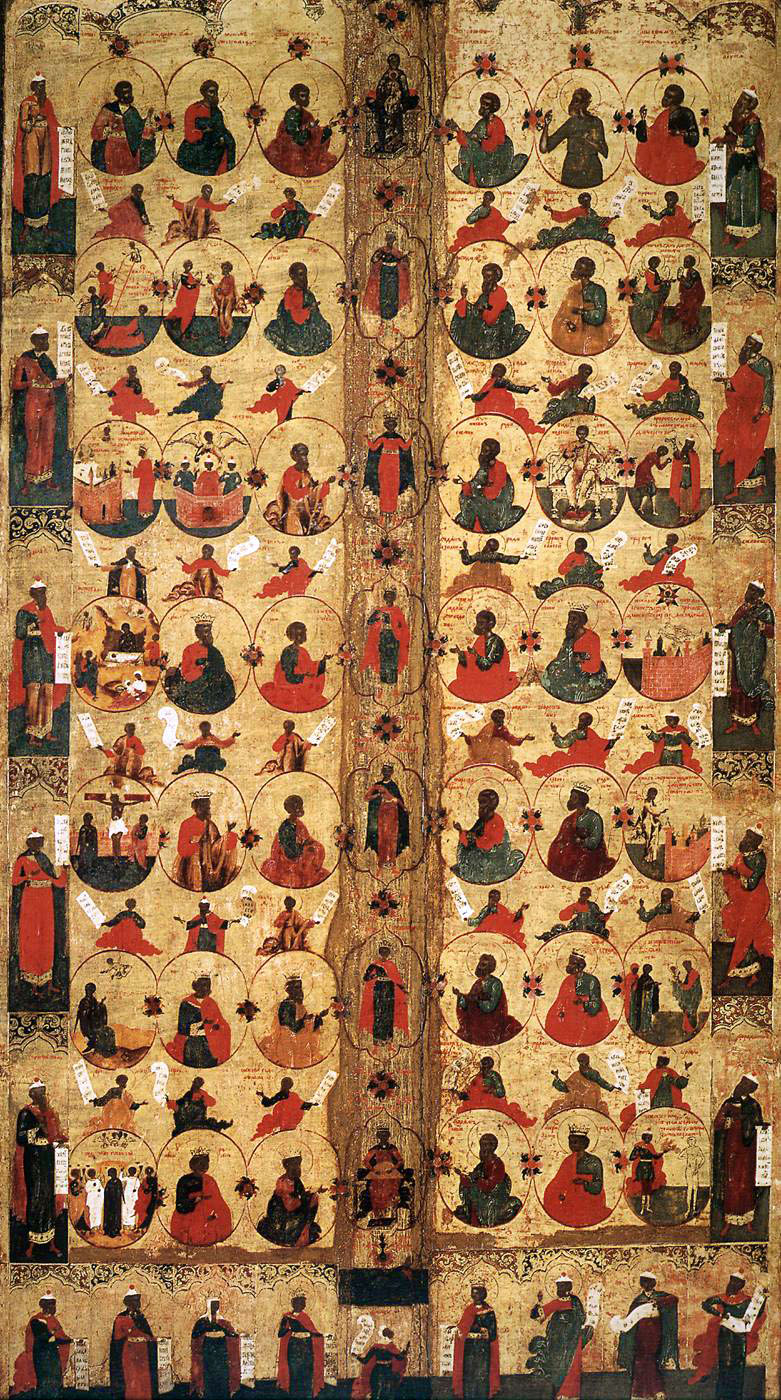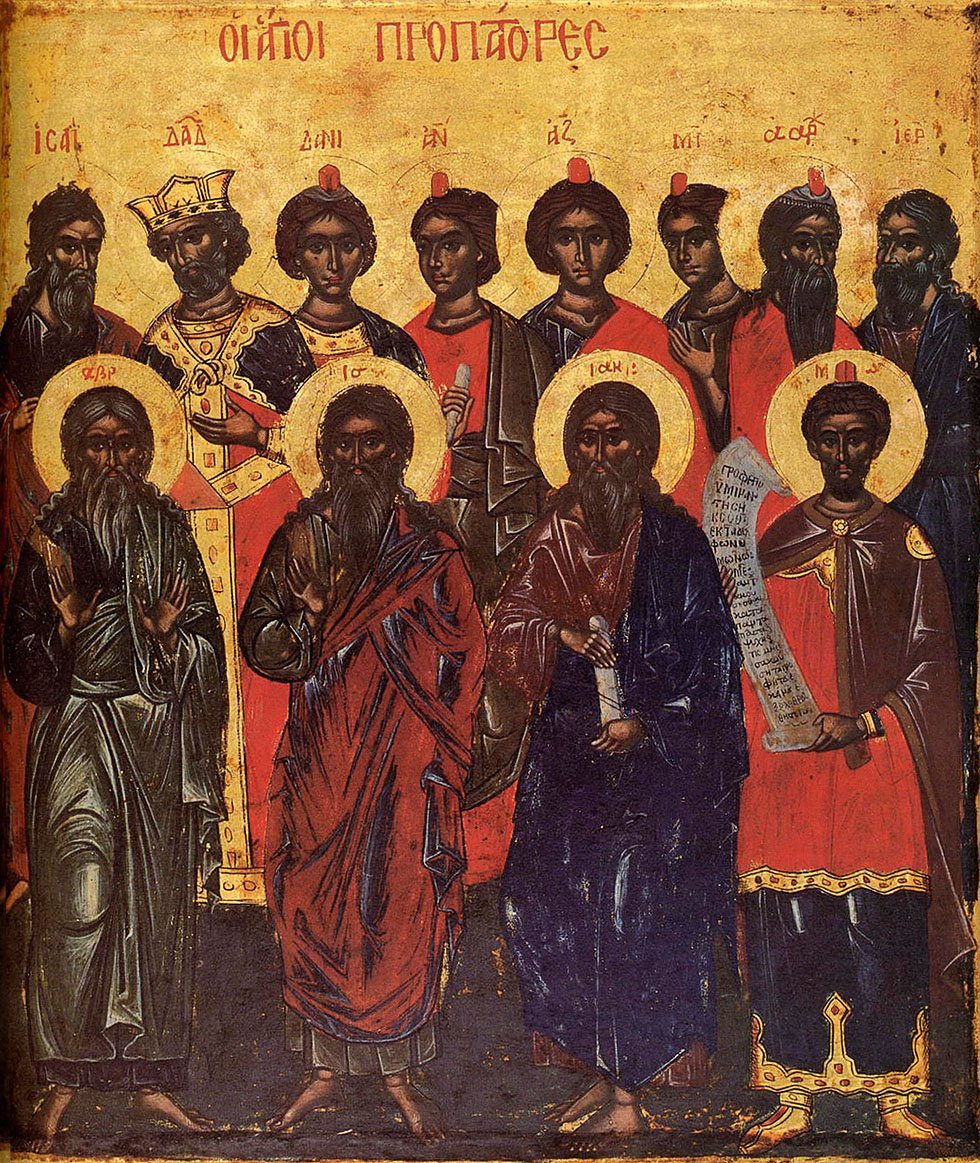The Forefathers of Christ (Fr. Stephen Freeman)
16 Δεκεμβρίου 2018
 Among the greatest blasphemies ever constructed by humankind was that of Nazi Germany. Not satisfied with their political dominance, they also sought a religious dominance as well. The notion of an “Aryan Christ” was perhaps the depths of their theological blasphemies mirrored in their dehumanization and murder of the Jews. At many points in the past two millennia, the relationship between Christians and Jews has hit low points – with the Jews almost universally at the short end of the stick. But to seek to create a Christ who Himself was not a Jew is (for a Christian) the worst of insults.
Among the greatest blasphemies ever constructed by humankind was that of Nazi Germany. Not satisfied with their political dominance, they also sought a religious dominance as well. The notion of an “Aryan Christ” was perhaps the depths of their theological blasphemies mirrored in their dehumanization and murder of the Jews. At many points in the past two millennia, the relationship between Christians and Jews has hit low points – with the Jews almost universally at the short end of the stick. But to seek to create a Christ who Himself was not a Jew is (for a Christian) the worst of insults.
The second Sunday before the Nativity, in Orthodox Tradition, is set aside as the Sunday of the Holy Forefathers in which the Church remembers all those who are of the ancestry of Christ.
These are the ancestors of Christ according to the flesh, who lived before the Law and under the Law, especially the Patriarch Abraham, to whom God said, “In thy seed shall all of the nations of the earth be blessed” (Gen. 12:3, 22:18).

The Saints Forefathers
In this modern century it also stands as a stark reminder that Christ was a Jew and as He said, “Salvation is of the Jews” (John 4:22). There is a tendency (seen at is worst in Germany of the 1930’s and 40’s) to divorce Christ from His history, to treat Him as though He simply appeared on earth, full-grown. This same tendency diminishes the role of His mother in the events of our salvation, contrary to the witness of Scripture.
For most of the Christian Church divorced from the fullness of Orthodox Tradition, the saints are only those of the New Testament, the Old Testament having been relegated to a questionable status (not questionable as Scripture, per se, but often divorced from its proper role in the story of salvation). Many Christians, on the popular level, distance themselves from the Old Testament saying, “I believe in the God of the New Testament.” This last statement is, though unknown to many, a heresy (Marcionism).
The theological maxim: the law of praying is the law of believing, is again manifested in its proper manner in Orthodox worship. There, the ancestors of Christ are remembered in a singular way, understanding that the plan of our salvation stretches through the whole of human history (indeed it is prophesied in Genesis). Added to this is the Orthodox custom of celebrating Old Testament saints, many with their own singular feast day (Churches are named for them as well). Unless the Church actually incorporates the whole life of the people of God into its own worship life, its people will begin to think that those prior to the New Testament have some lesser value – occasionally to a disastrous conclusion.
It is true that for Christians, the New Testament is the means for reading the Old (a neglected practice by those who practice a number of the so-called historical approaches). We must learn to see in the Old the shadow of the New and in so doing, not to despise the shadow because it was yet looking for its fulfillment. To despise the shadow is to despise the image is to despise the very reality itself.
Related to a theme I have touched on several times lately – to preach the fullness of the Gospel of Christ – the Christian story must not be truncated in any manner. Thus to remember the ancestors of Christ is to remember that the Gospel of Christ, the salvation accomplished on the Cross, is a Divine work, taken up by generations who preserved the Torah, who observed the Law, who suffered under Egyptian, Philistine, Babylonian, Persian, Alexandrian and numerous other oppressors as well as struggling against their own temptations (no less than we must ourselves). There is a great line of faithfulness that runs throughout those generations, despite any lapses, that finds its culmination for Christians in the Theotokos, the one whom all generations will call blessed. She recapitulates the whole of human history that had gone before, and unlike the primordial ancestor Eve, she responds to the initiative of God with, “Behold the handmaiden of the Lord, be it done unto me according to Thy word.” And thus the Word became flesh and dwelt among us, full of grace and truth. But let us tell the whole story that the fullness of the mercy of God might be remembered and the full company of His faithful children recalled. May they be blessed forever.
Stichera on Lord I Call for the Sunday of the Holy Ancestors, Tone 8:
Today, as we celebrate the memorial of the Forefathers, let us the faithful raise a hymn to Christ the Redeemer, the Lord who magnifies them among all the nations, and faithfully performs extraordinary wonders, as he is mighty and powerful; and he showed forth from them a rod of power for us, pure Mary the Child of God who alone knew no man, from whom the flower, Christ, came forth, blossoming life for all and pleasure without cost and eternal life.
Source: http://blogs.ancientfaith.com/glory2godforallthings/






